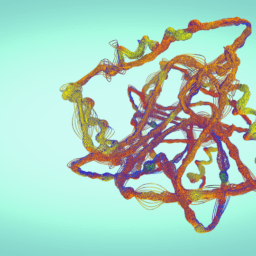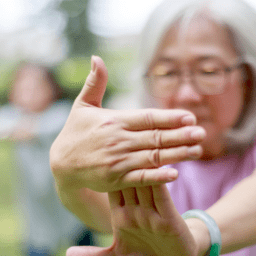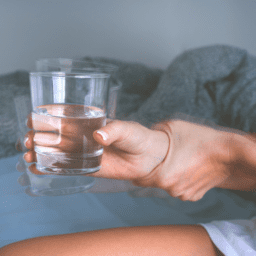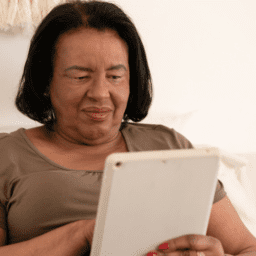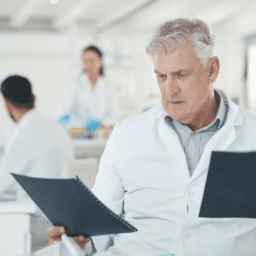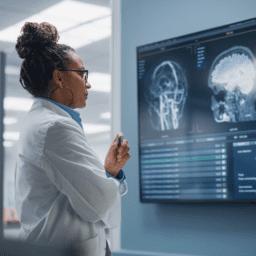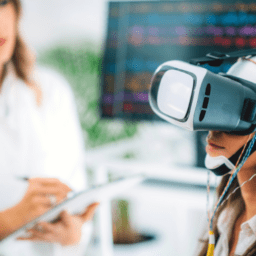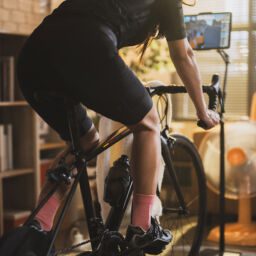Telehealth, forced exercise, Parkinson’s apps, gut bacteria research, hiking trips with llamas, and “wow moments” of hope: here are some of the most important articles, podcasts, research, opportunities, and living well stories happening now. Let us know if we missed anything important. Happy reading!
PARKINSON’S ARTICLES AND PODCASTS
- Researchers at Nagoya University in Japan recently published findings in Scientific Reports that blood pressure, hematocrit (a measurement of how much of someone’s blood is made up of red blood cells), and serum cholesterol levels are potential biomarkers of Parkinson’s, are evident before the onset of motor symptoms. Their findings suggest that general health checkups can help detect early signs of developing Parkinson’s and pave the way for earlier diagnosis and treatment.
- A partnership between the University of Queensland’s Faculty of Medicine and the biotechnology company Microba will allow researchers to study gut bacteria of people with Parkinson’s in hopes of discovering and developing new biomarkers and therapies. A first clinical trial is scheduled for this year to evaluate whether treatments can restore a health gut microbiome and ease common Parkinson’s non-motor symptoms such as constipation.
- Later this year, medical technology company Manus Neurodynamica will launch NeuroMotor, a digital pen that uses sensor technologies and software to record and analyze limb and hand movements quickly and non-invasively. Developed over the past ten years, the device is designed to help screen for and diagnose Parkinson’s and other movement disorders, as well as help with monitoring, rehabilitation, and drug development for several movement disorders, most notably Parkinson’s.
- Findings from a study published in Mental Health and Physical Activity indicates that people who experience increasing anxiety early in the course of Parkinson’s may begin to participate less often in physical activities, which can lead to subsequent cognitive decline.
- The Davis Phinney Foundation is among the signers of the January 2021 Open Letter to US State and Federal Policymakers Consensus Principles on Telehealth Across State Lines. Those endorsing the letter include “organizations, representing consumers, health care professionals, health systems, large employers, and others [who] urge you to give your citizens access to, and choice of, health care wherever they reside through the facilitation of telehealth across state lines.”
- With the onset of COVID, participants in a neurological cycling study at Genesis Health Club who had to stop their forced-exercise workouts “experienced a big drop in [health] benefits and either a worsening of motor symptoms or non-motor symptoms or both.” Article author Kris Meldrum writes that “this real life scenario reinforces what Dr. Jay Albert’s…2009 landmark research titled Forced, Not Voluntary, Exercise Improves Motor Function in Parkinson’s Disease Patients showed in his research findings.”
- Following a Mediterranean diet or MIND eating plan may help delay the onset of Parkinson’s. In their recent study published in the journal Movement Disorders, a research team in Canada explain the strong correlation they found between these nutritional plans (which are heavily plant-based) and delayed onset of Parkinson’s, perhaps because the diets reduce inflammation in the body.
- The biotech company Yesse Technologies will use a grant from The Michael J. Fox Foundation for Parkinson’s Research to advance its nose-on-chip platform, which can be used to detect the characteristic smell linked to Parkinson’s. Collaborating with them is neurologist Professor Bas Bloem, who says that by “collecting patient sebum samples and providing them to Yesse Technologies, we are facilitating the potential development of a much-needed, non-invasive biomarker for Parkinson’s…enabling more efficient treatments down the road.”
- “Polio, HIV, and COVID-19 moved at warp speed. Parkinson’s in contrast is still moving glacially.” In The Daily Beast, Parkinson’s expert Dr. Michael S. Okun shares his thoughts about the need for a Parkinson’s Operation Warp Speed.
- 110 Fitness, led by Davis Phinney Foundation Ambassador Brett Miller, has created a Parkinson’s wellness app with more than 150 videos, virtual workouts, and more. Search “110 Fitness” in your smartphone’s App Store to download the app.
- Learn about the 17 things that give Larry and Rebecca Gifford hope about Parkinson’s in this month’s “When Life Gives You Parkinson’s” podcast episode. “If you are a half-glass empty person, this episode will either be so packed with hope shooting out your ears, or you will have 17 more great, positive, groundbreaking, even life-changing, ‘wow’-moment things to find flaw with,” they say.
PARKINSON’S THERAPIES AND MEDICATIONS
- Results from a mouse model of Parkinson’s have led researchers to believe that BMP5 and BMP7, two bone morphogenetic proteins, have the potential to slow, or even halt, the progression of Parkinson’s. In their report published in the journal Brain, the team details their findings of how BMP5/7 treatment can prevent movement impairments caused by the accumulation of alpha-synuclein, as well as reverse the loss of dopamine-producing brain cells.
- The fourth generation of Boston Scientific’s Vercise Genus deep brain stimulation system has been granted approval from the U.S. Food and Drug Administration (FDA). This upgrade to the Vercise DBS system reportedly allows for better brain visualization and more precise delivery of electrical pulses to specific parts of the brain. It is also Bluetooth-enabled and has both rechargeable and non-rechargeable implanted pulse generators with improved battery longevity and targeted stimulation capabilities.
- Scientists from Maastricht UMC+ (The Netherlands), the Max-Planck Institute for Intelligent Systems (Germany), and the Karlsruher Institute of Technology (Germany) are researching how electrically charged nanoparticles that are a thousand times smaller than a human hair can wirelessly stimulate affected areas of the brain via a magnetic field–similar to deep brain stimulation but without the need for lengthy surgery and repeated battery replacement. “Wireless medical devices can revolutionize medicine in the future with minimally invasive, implantable, local, and effective treatment of a lot of diseases,” said the head of the department at the Max Planck Institute. “This study is a first step in the right direction.”
- A study published in the New England Journal of Medicine found that focused ultrasound, targeted onto the subthalamic nucleus in the brains of people with asymmetric Parkinson’s, produced a “very strong and potent effect on parkinsonian symptoms.” The research team believes their results warrant additional larger studies and note the need for technology refinements to ensure reliability and safety.
- A national Spanish study highlights the need for improvements in treating people with Parkinson’s during hospital stays. The survey detailed risk factors such as the incorrect timing of levodopa administration and the incorrect prescription administration of antidopaminergic drugs. To better protect the health of people with Parkinson’s, the study’s author says, hospital pharmacists should be actively involved in managing their care during hospital stays.
-
Results of a randomized clinical trial of 24 participants with major depressive disorder found that psilocybin-assisted therapy was “efficacious in producing large, rapid, and sustained antidepressant effects.” (While this is not directly related to Parkinson’s, we have many people who ask us about the use of treatments such as psilocybin-assisted therapy for treating depression. Because this was ranked #1 on JAMA Psychiatry’s quantitative assessment of attention each scholarly article received in traditional and social media, we thought it was worth sharing.)
PARKINSON’S LIVING WELL STORIES
- 61-year-old John Cullen tells US News and World Reports that exercise has transformed how he lives with Parkinson’s. Six months after beginning a new workout routine, he says, “I was able to walk backward. I felt like I could go up and down stairs better. Things were really rocking and rolling. I felt almost like I didn’t have it, even though I knew I had it. It was just that good.“
- Diagnosed with Young Onset Parkinson’s Disease (YOPD) at age 35, Mike Whitt at one point in his Parkinson’s journey was taking 40 pills a day to manage symptoms. Now, after deep brain stimulation (DBS), he is off all medication, “goes on bike rides and kicks a soccer ball around with the kids, activities that would have been ‘inconceivable’ a few years ago,” and is grateful that it has allowed him to “to do the things that I want to do with my life.”
- TikTok has helped pave the way to a better pill bottle for people living with Parkinson’s. After posting on the social media site videos and personal accounts of his experiences with Parkinson’s, including one when he demonstrated how tremors in his hands make opening pill bottles difficult, elite athlete Jimmy Choi saw a community come together to devise a solution.
PARKINSON’S SURVEYS, CLINICAL TRIALS, and volunteer opportunities
Looking for a once in a lifetime adventure? Pass to Pass, a nonprofit dedicated to raising Parkinson’s awareness while supporting hikers living with Parkinson’s, offers multi-day hiking trips (with llamas!) on the Pacific Crest Trail in both Washington and Oregon. Participants are being recruited now for these summer 2021 events. For more details and information, visit www.PasstoPass.org or contact Bill Meyer at 509-991-1212 or spokanebill@gmail.com.
Parkinson’s Progression Markers Initiative (PPMI) Screen Survey – The Michael J. Fox Foundation
Home-based Exercise and Cognitive Behavior Therapy – University of Alabama in Huntsville
Speech and Telemedicine Study – The Purdue Motor Speech Lab
Home Based Tele-exercise Study for People with Chronic Neurological Impairments – Burke Neurological Institute
Parkinson’s and Drooling – European Parkinson’s Disease Association (EPDA)
Parkinson’s and Service Dogs – University of Groningen, Netherlands
Neurology Study Interest Registry – University of Rochester
Park Test – University of Rochester
Project Euphonia – LSVT Global and Project Euphonia
BouNDless – Phase 3 trial to investigate the efficacy, safety, and tolerability of ND0612, a continuous subcutaneous levodopa/carbidopa delivery system in comparison to oral levodopa/carbidopa in people with Parkinson’s experiencing motor fluctuations
Featured image courtesy of Linda Lee, Pass to Pass
WANT MORE PRACTICAL ARTICLES LIKE THIS?
Much more can be found in our Every Victory Counts® manual. It’s packed with up-to-date information about everything Parkinson’s, plus an expanded worksheets and resources section to help you put what you’ve learned into action. Request your free copy of the Every Victory Counts manual by clicking the button below.
Thank you to our 2021 Peak Partners, Adamas, Amneal, Kyowa Kirin, and Sunovion, for helping us make printing, distributing, and shipping the Every Victory Counts manual possible.






